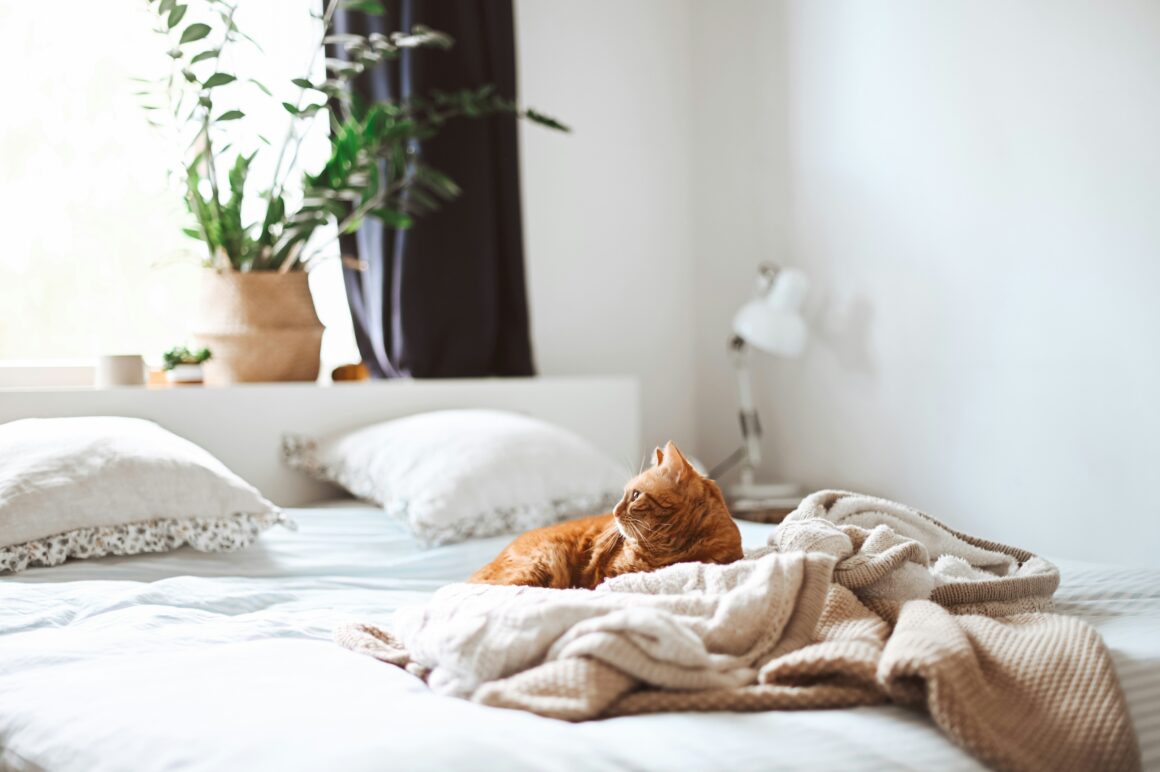
Mental health and chronic fatigue
It is currently both myalgic encephalomyelitis and mental health awareness month, so let’s have a chat about mental health and chronic fatigue.
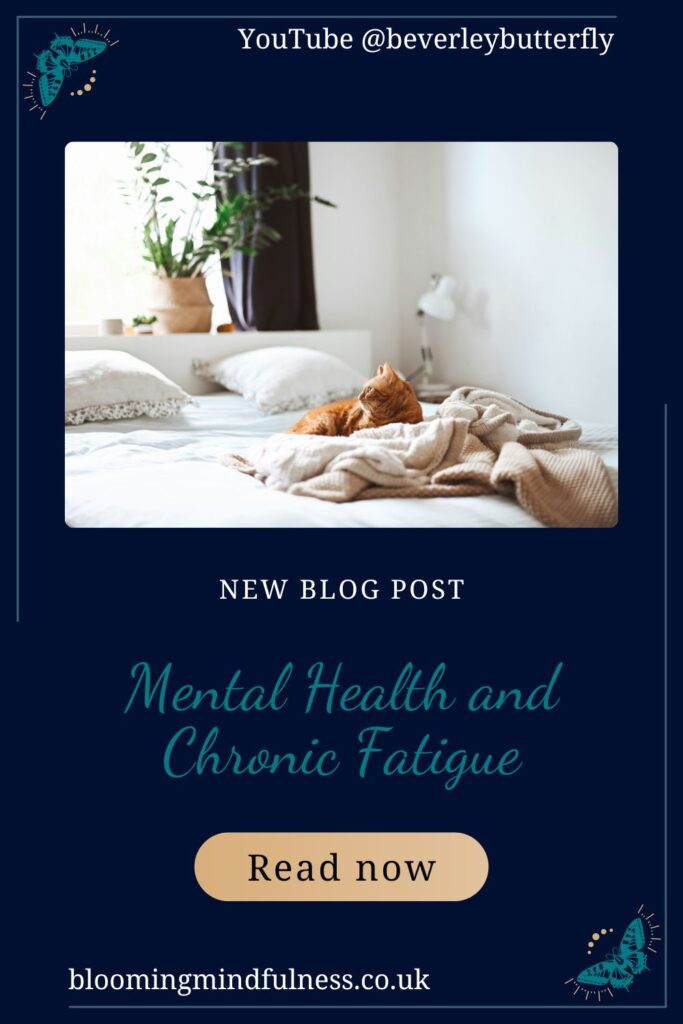
Image description: a ginger cat is chilling in a messy white bed with sunlight streaming in through a window behind
I have spoken in the past about the importance of awareness months, as they help us to spread knowledge and experiences around the conditions in the spotlight. I have also spoken about how all my illnesses have their awareness months in May… so I am doing my best!
For me though, as my fatigue has worsened since also contracting long covid, I have noticed how my illnesses all affect one another. Especially how they seem to gang up together and affect my mental health, and I figure if that happens to me, it probably happens to others.
I started this blog as a way to share my experiences and hopefully help others feel less alone. People who experience myalgic encephalomyelitis, long covid, or fatigue as part of another chronic condition can often spend much of their time alone.
Once social and outgoing people can find this a shock, I know I did when I first got sick, which came out of nowhere. I struggled with depression for many years after this, struggling with living back with my parents and trying to find a job I could actually do.
Now, as the government start saying they want us back in the workforce, those first years going from job to job come back to haunt me. I was so desperate to earn money and pay my way, I took part time work, I tried office jobs and shops, anything I could get but it was clear life was not going to look how I had ever imagined.
Most of my adult life has been spent at home, due to my anxiety disorder and my fatigue, I have to be with someone. This makes your life small; your friends circle becomes small or non-existent or with people online.
Loneliness has a huge impact on both our physical and mental health, we all experienced this and saw it first hand during the pandemic. The elderly can often experience this as well, but as a young person, you rarely expect to feel lonely, I know I didn’t.
However, the friends I had before I got sick, soon disappeared when I had to move away and could no longer go out and do the things I used to enjoy. This is experienced and talked about a lot within the chronic illness community, and I wish it were understood and cared about more.
On top of this, many of us speak about guilt and the pressure we feel to do more or the want to do more. I know I would love to have a little work from home job, or be able to keep up with the housework, but I spend most of my time just trying to wake up and stay awake long enough to do a few things every day never reaching the end of my list!
I feel like that is my mantra every night “I wish I could do more” because it often feels as if I am chasing my tail trying to get everything done in the couple of workable hours every day. Fatigue is always on my back, just like my chronic depression, both trying to make it hard to get any small thing done against a clock they choose.
The thing that seems to get to me the most, is the idea that fatigue is not an illness and is in fact all in our head! Though there is a lot of evidence to the contrary, the medical community seem to believe that we all should be back in the asylums.
Mental health and chronic fatigue are linked to one another, but not because the illness is make believe, but because it stops us living a life. People do not see the days spent in bed, the afternoon naps or the zombie stare as our brain fogs up.
I spoke not too long back about when I was hit with fatigue while out with friends, how surprised they were with how it affected me. I couldn’t speak properly, and I needed extra help to walk, it is very real and not something I could control.
At the time I felt embarrassed, worried they would think less of me or say it would be better if I didn’t go out again. That has happened in the past, but thankfully it just made them more aware, and they keep a closer eye on me now.
So, how do I cope with my mental health and chronic fatigue, how do I make sure to keep my head as healthy as possible?
Mental health and chronic fatigue:
- Mindfulness – ok, I know but it is the name of the blog for a reason! Everything changed when I started to practice mindfulness. It helps me to notice negative thinking and depressive episodes faster and helps me not to get lost in them.
- Pets – My pets help me to feel less alone, they listen when I am down, we take naps together and watch movies together. They are so precious so if you are able to get a pet, I highly suggest you do because it’s a wonderful gift.
- Online community – there are so many places online from blogs like mine, Instagram accounts, facebook groups and so much more for every illness on the planet. Get involved, ask questions and support others, it might be scary, and you do need to practice online safety, but it can be so fulfilling. You will also learn more about your illness than from any book or doctor out there because it is from people with lived experience!
- Ignore the news – right now there is a lot of hate and discourse being sent our way. It is hard on our mental health and can flare our chronic illnesses as well as flaring our mental health. So, I stopped watching the news I am on social media, so I keep up but without that continual negativity my mental health is so much better!
- Get help – there are charities out there on our side, there are many that will help you fill in forms or find the right benefits for you. Don’t be afraid to get help and to ask for help, they will take the stress away and that will be a huge relief.
- Rest when you need it – we all have things we wish we could do, but if you need to nap then go and nap! I try not to nap every day, because it stops me sleeping at night. But if I am crashing, I no longer fight it, I rest if needed because fighting it just makes me feel worse.
- Slow down – pacing is a word we hear a lot, its not easy to do, I started to practice slow living. Taking a moment, to have a cup of tea in the garden, to sit and read, do a jigsaw puzzle. Life doesn’t always need to be rush through or all about to do lists, we are worth more than what we can do. So, slow down, rest between each task and smell the roses enjoy your life as much as you can.
But the most important thing to help my mental health with chronic fatigue has been to be kind to myself. I am doing my best while living with chronic illnesses. Most people fell apart when the pandemic happened, and they were made to stay home for a couple of months.
I have lived like that for years; I am doing my best and I deserve to receive kindness not just from society but from myself. You deserve the same, so be kind to yourself every day is different, its hard to plan or know how your body will be, but by being kind to yourself you will keep your mental health as well as it can be.
Mental health and chronic fatigue go hand in hand, they both affect the other and that is a lot to deal with. We might be scattered around the world and hidden away as we battle them, we are not alone, you are not alone.
Thank you xx
If you enjoy what I do, please support me on Ko-fi as a one-off tip or on Patreon for just £2 a month! that can help me keep my YouTube & blog going xx


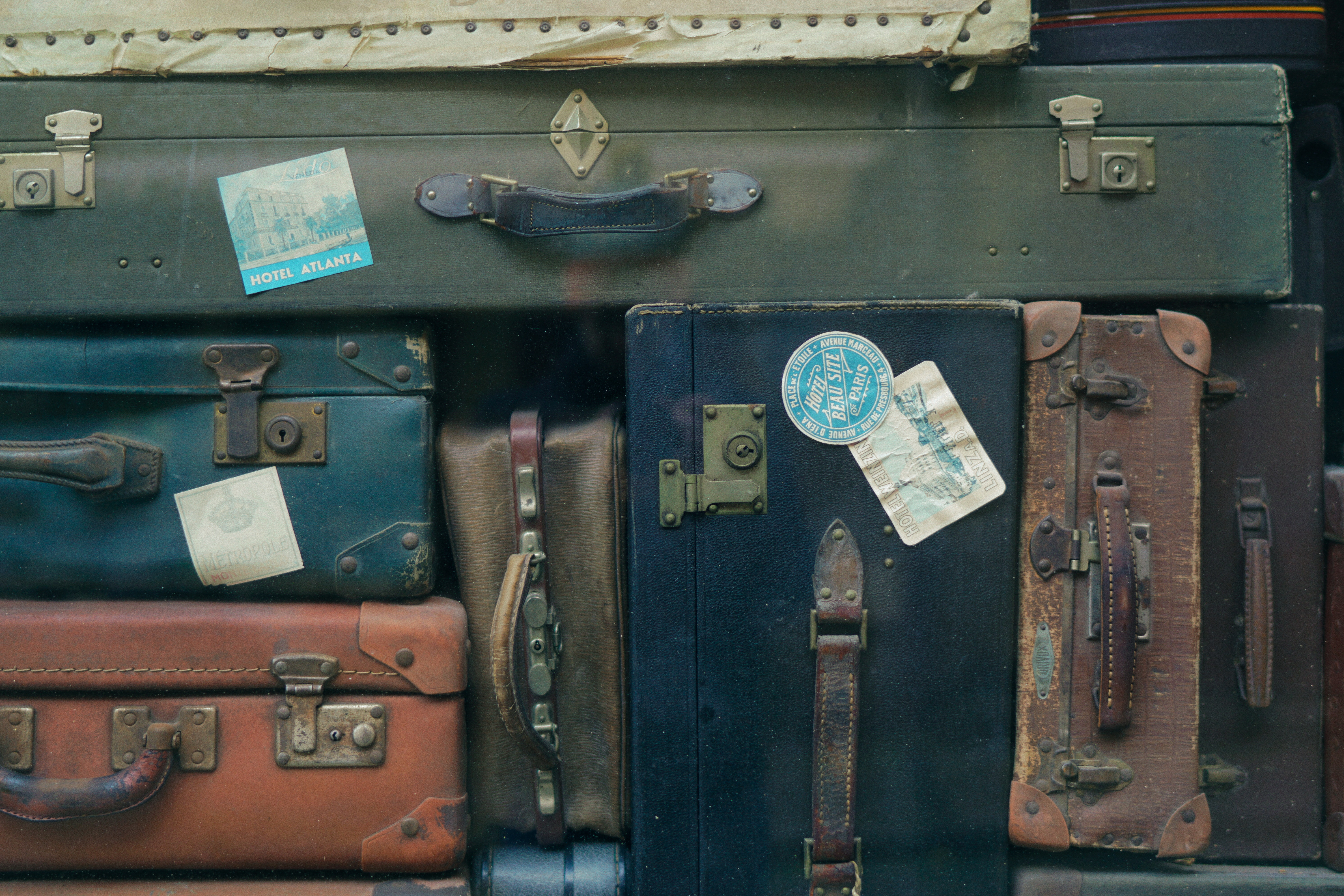
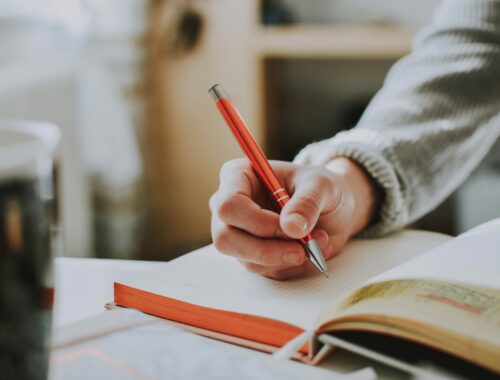
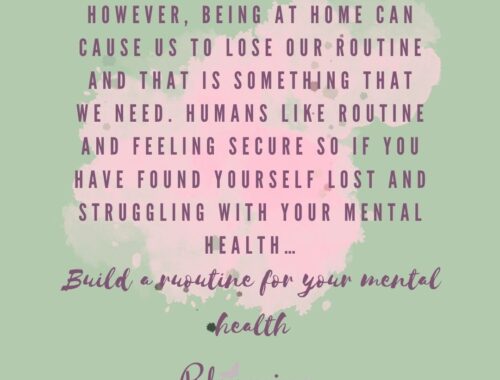
3 Comments
Flowersstorms
Hey sweetheart! I really do identify with so much of what you’ve said here. The awful gaslighting of ‘it’s all in your head’ etc is soul destroying, but finding community with likeminded people really does make a difference, doesn’t it! I also love your reminder to be kind to ourselves – it’s so easy to forget this xx
Kaz
Very well said! I find it awful that you were told it’ll be better if you stayed at home. So glad you have people in your life now who understand and are kind to you.
admin
Thank you sweetheart, I am so lucky xx